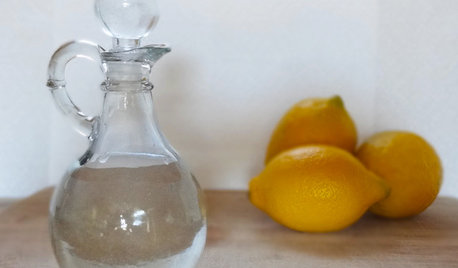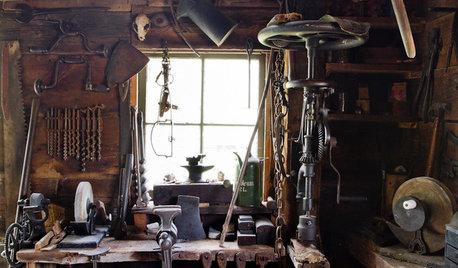any vinegar makers out there?
trianglejohn
17 years ago
Related Stories

HOUSEKEEPINGVinegar and Voilà: Clean Your House the Natural Way
Ditch the commercial cleaners for nontoxic, inexpensive and versatile white vinegar
Full Story
HOUZZ TVHouzz TV: This Maker‘s Home Makes Everything OK
Maker Aleksandra Zee finds inspiration in a common building material and the serenity of home. Watch our latest episode of Houzz TV
Full Story
DECORATING GUIDESMood Makers: Luxurious Looks on a Budget
Want a high-end look in your home but feeling choked by your budget? Try these pro decorator tips to give your rooms a luxe look for less
Full Story
DECORATING GUIDESMood Makers: Make Your Home Feel Welcoming
Lighting, music, scent and other thoughtful touches create a welcoming home for guests — and for you and your family
Full Story
DECORATING GUIDESMood Makers: 5 Easy Ways to Put Your Home On Trend
You don't need a full renovation to modernize outdated interiors. These tips can help your home feel fresh and current without a ton of work
Full Story
MATERIALSAre You a Maker? Show Us Your Favorite Tool or Material
Houzz Call: A tool or material can be a maker’s best friend. We’d like to see your favorite — and what it helps you achieve
Full Story
EVENTSMaker Faire: The Future Is Now
Kid-friendly robots and high-tech sprinkling systems: This fair shows what’s new and next
Full Story
DECORATING GUIDESMood Makers: Small Rooms, Spacious Feel
Make a small room feel more open with these decorator tricks for visually expanding the space
Full Story
DECORATING GUIDESMood Makers: Create a Peaceful Place
Sink into the restfulness you crave with these design tips for transforming a space at home into an oasis of calm
Full Story
EVENTSSee Where America's Most Celebrated Furniture Maker Lived and Worked
Walk with us through the Southern California home and studio of Sam Maloof as events honoring his centennial kick off
Full StorySponsored



bud_wi
trianglejohnOriginal Author
Related Discussions
Balance out limestone with vinegar?
Q
BER - any chemists with thoughts on reacting lime with vinegar?
Q
Any Jewelry Makers Out There?
Q
OT - Any donut makers out there?
Q
bud_wi
bejay9_10
trianglejohnOriginal Author
bejay9_10
bud_wi
bud_wi
trianglejohnOriginal Author
bud_wi
trianglejohnOriginal Author
ebohatch
krow
lisak
Octogenarian
lisak